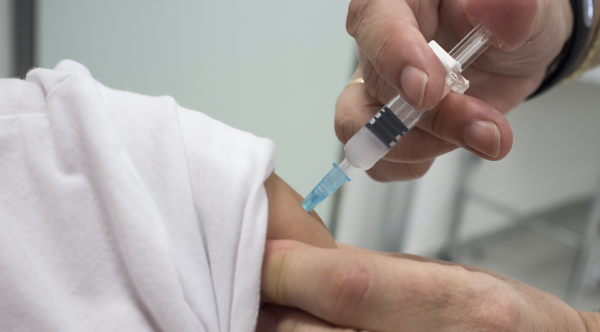New Australian research has found a significant gap in adult vaccination with the subject unlikely to be raised in GP discussions with patients unless they are in contact with young children.
The research, which has a focus on whooping cough (pertussis), was authored by a number of Australian-based and global experts at GSK. It is based on surveys of GPs and consumers conducted by IQVIA over four years.
Pertussis is highly contagious in unvaccinated individuals. Periodic booster doses are recommended as neither natural nor vaccine-induced immunity against the infection is lifelong.
The research found that discussions about vaccination only occurs in a small minority of GP encounters with adults. The pertussis vaccine was amongst the five most frequently identified vaccine-preventable diseases. Yet it was unlikely to be proactively discussed with adults who were not in contact with young children.
Worryingly, amongst adult consumers, only one-in-three could recall ever receiving a pertussis vaccination.
Only 9-13 per cent of GPs surveyed indicated discussing vaccination with their adult patients. When it was discussed, GPs indicated that 69–77 per cent of patients proceeded to be vaccinated according to their advice.
According to the research, only 6-10 per cent of Australia adults visiting their GP are vaccinated each year.
The flu vaccine remains the most frequently discussed. It was raised in 85 per cent of GP-consumer interactions that involved a discussion about vaccination, compared to just 56.5 per cent for pertussis.
Over 90 per cent of consumers surveyed expressed a positive attitude to the importance of vaccination.
Among those vaccinated at any time during their adulthood, the five most frequently identified vaccines were tetanus, flu, hepatitis B, hepatitis A and pertussis.
According to co-author Associate Professor Michael Nissen, director of scientific affairs and public health at GSK Greater China Intercontinental, the results are concerning given the lower number of Australian adults who have received the pertussis vaccine.
“Despite evidence of disease burden from pertussis in adults and correlations between older age and hospitalisation rates from the disease, we still have relatively low immunisation rates in adulthood for pertussis. The drivers seem to be low awareness and low GP recommendation for adult vaccination. We definitely have two key factors to work on there,” said Professor Nissen.
Unvaccinated adults identified the top two reasons as a lack of GP recommendation (52 per cent) and lack of awareness of the need for adult vaccination (26 per cent).
Dr Rodney Pearce, chairman of the Immunisation Coalition, said, “People aged over 65 are at increased risk of complications if they contract pertussis. So as per the current guidelines from the Australian Technical Advisory Group on Immunisation (ATAGI), healthcare professionals need to be framing their recommendations around the health of older adults, independent of contact with young children.
“It has been shown through COVID-19 that older adults have lower immunity and higher vulnerability to infectious diseases such as pertussis. GPs are uniquely placed to increase vaccination coverage via their advice to patients about pertussis at a time when many older adults are feeling particularly vulnerable,” said Dr Pearce.
According to Professor Mary-Louise McLaws, Professor of epidemiology in Healthcare Infection and Infectious Diseases Control at the University of NSW, “When I say that protecting adults from diseases that are vaccine-preventable is important, I’m not just talking as a professional epidemiologist but also as someone with a personal experience of pertussis. I was diagnosed with pertussis as an adult.
“The cough is insidious. It becomes more and more persistent, gets worse at night and hangs around for weeks. It stayed with me for 3 months."
